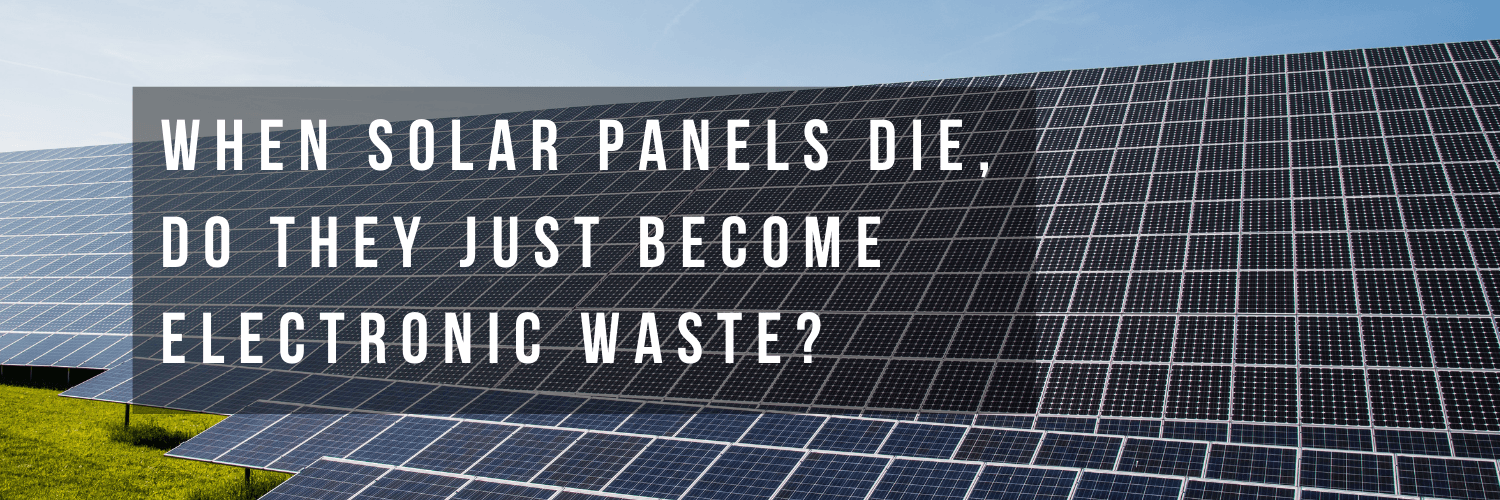
When Solar Panels Die, Do They Just Become Electronic Waste?
Aug 19th, 2020Solar panels along with wind-generated energy are considered to be a renewable power that will help us win the fight against climate change and reach for a cleaner future.
Although solar panels play an important role in our fight against climate change, first-generation solar panels are starting to die and might be leaving behind a big pile of solar mess.
So, what will happen to the millions of solar panels when they are out of service?
It appears that recycling requirements all over the world are popping up. In Europe, for example, solar panel manufacturers are already required to make sure that their solar panels are recycled in a proper way. Countries like Australia and Japan are seemingly close to legislations that require similar methods for their solar panel manufacturers.
The United States, however, is nowhere close to any recycling requirements. Perhaps the exception is the State of Washington, where legislature requires companies “to provide the public a convenient and environmentally sound way to recycle all modules purchased after July 1, 2017.” It is unclear what the requirements are for solar panels manufactured before that date.
Just recently, Arizona State University solar researcher, Meng Tao stated that “if we don’t mandate recycling, many of the modules will go to landfill.”
This is unacceptable. Countries need to have or create policies and regulations that support the proper recycling of solar panels. It would be counter-intuitive to have a complex piece of technology that generates green energy ending up doing more harm than good to the environment.
Can Solar Panels be Recycled?
By following just a few steps, we can get rid of solar panels without having to send them into landfills.
On average, a solar panel will have worked efficiently for close to 30 years. Once these panels reach the end of what has been a productive life, they shouldn’t be tossed out together with all the other trash. Instead, they should be prepped for recycling.
Although it is true that not all components are suitable for recycling, those parts that are can be reused by solar panel manufacturers after being processed in a recycling facility.
Typically, the parts made out of glass and metal are quite easily recycled. The wiring and solar cells can also be recycled without too many problems.
However, any parts that are connected to silicon materials, have to be first separated before any recycling can take place. Unfortunately, in order to recover that silicon and the silver within the panels, a more complicated recycling solution is needed.
So, the answer is no! Solar panels do not have to end up as electronic waste. They do need a bit of attention, and we owe it to nature to make sure they receive it.
Ready to build your career in Zero Waste?
If you are ready to take your Zero Waste knowledge to the next level, then you can register for the Zero Waste Fundamentals Program.
This self-run course consists of 5 sessions, a mix of video classes, mini-quizzes, exercises, and additional resources. It is specifically designed for those who are looking for more in-depth knowledge on Zero Waste and aims to provide a solid foundation of Zero Waste practices, policies, values, and concepts.
After completion, you will be able to actively identify, support, and advocate for Zero Waste, achieving a Zero Waste Canada official certificate of conclusion.
It is time to delve into this new way of living and become the first among your colleagues, community, friends, and family, who started their journey toward Zero Waste.
Don’t forget to share this post with all those who care for their environment and are ready for a new challenge!
